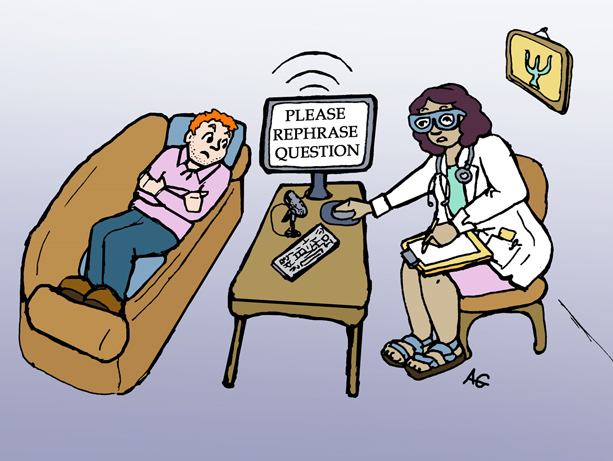If you are considering becoming a psychotherapist, or are simply interested in what the profession entails, then this resource guide is for you. In it, we will cover everything from the educational qualifications and training required to become a psychotherapist, to the types of psychotherapy available and how to choose the right one for you.
We will also hear from experts in the field about their experiences as psychotherapists, and offer case studies to help illustrate different aspects of the profession. So whether you are just starting on your journey to becoming a psychotherapist or are looking for more information on this fascinating area of work, read on!
Contents
- 1 Understanding Psychotherapy And Psychotherapist
- 2 Becoming a Psychotherapist
- 3 Working As Psychotherapist
- 4 Conducting Psychotherapy Session
- 5 Setting Up Psychotherapy Session
- 6 Giving Psychotherapy Session
- 7 Wrapping Up Psychotherapy Sessions
- 8 Canceling Psychotherapy Session
- 9 Ending Psychotherapy Session
- 10 Hearing From Experts
- 11 Finding a Psychotherapist
- 12 Conclusion
- 13 A Word From Therapy Mantra
Understanding Psychotherapy And Psychotherapist

Psychotherapy is a form of psychological treatment that aims to help people change their behavior, thoughts, and feelings to improve their well-being ( American Psychological Association, 2018). It can be used to treat a wide range of mental health conditions, such as anxiety and depression.
Does Psychotherapy Work
A recent study published in the journal PLOS ONE found that psychotherapy is an effective treatment for mental health conditions (Hofmann, et al., 2018). The study looked at data from over 400 clinical trials involving over 100,000 participants.
The researchers found that psychotherapy was effective in treating a range of mental health conditions, including anxiety, depression, obsessive-compulsive disorder (OCD), posttraumatic stress disorder (PTSD), and eating disorders.
Psychotherapy And Medication
In some cases, a psychotherapist may also prescribe medication to their clients. This is usually done in cases where the client is dealing with a mental health disorder, such as anxiety or depression. Medication can be an effective treatment for mental health disorders, but it is important to note that it should not be used as a replacement for therapy.
If you are considering medication as a treatment for your mental health disorder, you should talk to your psychotherapist. They can help you to determine if medication is the right option for you. And can provide you with more information about the different types of medication that are available.
Psychotherapist
A psychotherapist is a mental health professional who provides psychotherapy to people with mental health conditions. They may work in private practice, or be employed by a hospital or clinic.
There are different types of psychotherapists, such as psychiatrists, psychologists, social workers, and counselors. However, not all psychotherapists are qualified to provide every type of psychotherapy.
Types of Psychotherapist
The different types of psychotherapists include:
Psychiatrists: A psychiatrist is a medical doctor who specializes in mental health. They can prescribe medication, and may also provide psychotherapy.
Psychologists: A psychologist is someone who has completed a doctoral degree in psychology. They are qualified to provide psychological assessments and therapy.
Social workers: A social worker is someone who has completed a bachelor’s or master’s degree in social work. They are qualified to provide counseling and therapy.
Counselors: A counselor is someone who has completed a bachelor’s or master’s degree in counseling. They are qualified to provide counseling and therapy.
Types of Clients
As a psychotherapist, you will work with a variety of different clients. These clients can include:
Individuals: You can work with individuals who are dealing with a variety of issues, such as depression, anxiety, or relationship problems.
Couples: You can work with couples who are having difficulty communicating or resolving conflict.
Families: You can work with families who are dealing with a variety of issues, such as addiction, mental illness, or violence.
Group: You can work with groups of individuals who are dealing with similar issues.
NOTE: When working with clients, it is important to remember that each client is unique and will require a different approach. As a psychotherapist, you will need to be flexible and adapt your approach to meet the needs of each client.
Psychotherapist Vs. Counselor
When choosing a psychotherapist, it is important to understand the difference between a psychotherapist and a counselor.
Psychotherapist
A psychotherapist is a mental health professional who provides psychotherapy to people with mental health conditions. They may work in private practice, or be employed by a hospital or clinic. There are different types of psychotherapists, such as psychiatrists, psychologists, social workers, and counselors. However, not all psychotherapists are qualified to provide every type of psychotherapy.
Counselor
A counselor is someone who has completed a bachelor’s or master’s degree in counseling. They are qualified to provide counseling and therapy. Counselors usually work in private practice or community mental health centers.
NOTE: It is important to remember that not all counselors are psychotherapists, and not all psychotherapists are counselors. If you are looking for therapy, it is important to find a therapist who specializes in the area of concern that you are experiencing.
Becoming a Psychotherapist

If you are interested in becoming a psychotherapist, there are a few things you need to know.
Educational Qualification
The first step is to complete an undergraduate degree in a relevant field, such as psychology, social work, or counseling. After completing your undergraduate degree, you will need to complete a graduate-level program in psychotherapy.
These programs are typically offered by universities and colleges. And they have accreditation from the Canadian Association for Psychodynamic Therapy (CAPT) or the American Psychological Association (APA).
Training and Supervision
Once you have completed your graduate-level program in psychotherapy, you will need to complete a period of supervised training. This typically takes around two years. And during this time you will be required to see clients under the supervision of a qualified psychotherapist. After you have completed your supervised training, you will need to pass a licensing exam to become a licensed psychotherapist.
Licensing Exam
The licensing exam is known as the Qualifying Examination in Psychotherapy (QEP). It is administered by the Canadian Psychological Association (CPA).
Suitable Personality Traits
To be a successful psychotherapist, you will need to have certain personality traits. These include:
Empathy: You need to be able to understand and share the feelings of your clients.
Patience: You will need to be patient with your clients, as they may not make progress immediately.
Non-judgemental Attitude: You need to be able to accept your clients for who they are, without judging them.
Ability To Build Rapport: You must be able to build a rapport with your clients, so they feel comfortable opening up to you.
Suitable Skills For Psychotherapy
In addition to the personality traits listed above, you will need to possess certain skills to be a successful psychotherapist. These include:
Flexibility: You need to be flexible in your approach, as different clients will require different approaches.
Creativity: You need to be creative in your approach, as you may need to come up with new ideas to help your clients.
Active Listening Skills: You need to be able to listen attentively to your clients, so you can understand their needs.
Empathic Responding: You need to be able to respond to your clients in a way that shows you understand their feelings.
Problem-Solving Skills: You will need to be able to help your clients solve their problems.
Communication Skills: You need to be able to communicate effectively with your clients. This includes being able to explain things clearly and concisely.
Working As Psychotherapist
Once you have completed your training and obtained your license, you can start working as a psychotherapist.
There are several places where you can find work as a psychotherapist. These include:
Schools: You can work in a school setting, where you will provide therapy to students.
Hospitals: You can work in a hospital setting, where you will see patients who have been referred to you by a doctor.
Private Practice: You can set up your own private practice and see clients on a one-to-one basis.
Private Companies: You can work for a private company, where you will provide therapy to employees.
Correctional Facilities: You can work in a correctional facility, where you will provide therapy to prisoners.
Community Mental Health Centers: You can work in a community mental health center, where you will provide therapy to groups of people.
Substance Abuse Treatment Centers: You can work in a substance abuse treatment center, where you will help people who are struggling with addiction.
Growth Opportunities
As a psychotherapist, you have the opportunity to grow and develop your skills. You can do this by taking courses and workshops, and by attending conferences.
You can also become certified in certain areas of psychotherapy. This will show that you are an expert in that particular area, and it will allow you to work with clients who have specific needs.
If you want to advance in your career, you can become a supervisor or a manager. You can also become a research psychotherapist or a teacher of psychotherapy.
NOTE: There are many different opportunities available to you as a psychotherapist. It is up to you to decide which path you want to take.
Conducting Psychotherapy Session

The main job of a psychotherapist is to provide therapy to their clients. This involves helping them to overcome their problems and improve their mental health. A few things that you should take into the picture:
Duration Of Psychotherapy Sessions
The duration of psychotherapy sessions will vary, depending on the needs of the client. Some clients may only need a few sessions, while others may need to see a psychotherapist for a longer period of time.
Frequency Of Psychotherapy Sessions
The frequency of psychotherapy sessions will also vary, depending on the needs of the client. Some clients may need to see a psychotherapist once a week. While others may only need to see them every other week.
NOTE: The length of each session will also vary, but most sessions last for 60 minutes.
Setting Up Psychotherapy Session
When you first meet with a client, you will need to set up a psychotherapy session. This involves scheduling a time and place for the session and letting the client know what to expect.
During the first session, you will also need to assess the needs of the client. This will help you to determine how often they need to see a psychotherapist, and what type of therapy would be most beneficial for them.
Giving Psychotherapy Session
Once you have set up the session, you will need to give the therapy. This involves talking to the client about their problems and helping them to find solutions.
Types of Psychotherapy
When you are providing therapy to a client, it is important to find the right technique. This will depend on the needs of the client and the type of problem that they are experiencing. You can do this by assessing the client’s problems and then using a technique that will address these problems.
These techniques can include:
Cognitive-Behavioral Therapy (CBT): CBT is a type of therapy that focuses on the thoughts and behaviors of the client.
Interpersonal Psychotherapy (IPT): IPT is a type of therapy that focuses on the relationships of the client.
Psychodynamic Psychotherapy: Psychodynamic psychotherapy, focuses on the unconscious mind of the client.
Humanistic Psychotherapy: Humanistic psychotherapy, focuses on the emotions of the client.
Eclectic approach: You can also use an eclectic approach. It means that you will use a variety of different techniques, depending on the needs of your client. You may also use other techniques, such as art or music therapy, to help the client.
NOTE: You should also keep in mind that the client may need to see a psychotherapist for a longer period of time, to make progress.
Wrapping Up Psychotherapy Sessions
Once you have provided the therapy, you will need to wrap up the session. This involves giving the client a summary of what was discussed and setting up a time for the next session. You will also need to provide the client with resources, such as books or websites, that they can use to help them. You should also encourage the client to contact you if they have any questions or concerns.
Canceling Psychotherapy Session
If you need to cancel a session, you should give the client as much notice as possible. You can do this by calling them or emailing them. Also, you should also offer to reschedule the session. Furthermore, you should only cancel a session if it is necessary.
NOTE: If you have to cancel a session, you should make sure that you provide the client with resources, so they can still get help.
Ending Psychotherapy Session
When it is time for a psychotherapy session to end, you will need to let the client know. This usually involves telling them that the time is up, or that the session is over. You should also thank the client for their time and let them know that you are available if they need to see a psychotherapist again in the future.
Hearing From Experts
To learn more about the role of a psychotherapist, we reached out to Dr. John Duffy, a clinical psychologist, and author. Here is what he had to say:
“The work of the psychotherapist is both challenging and rewarding. It can be difficult to see people struggle, but it is incredibly fulfilling to witness them make progress and achieve their goals. I would encourage anyone interested in this field to do their due diligence and learn as much as they can about what it entails, but ultimately I believe that the rewards far outweigh the challenges.”
Case Study
To provide you with a better understanding of the role of a psychotherapist, I will share a case study with you. In this case study, I will be discussing the work of a therapist who is working with a couple who is dealing with trauma.
The therapist begins by meeting with the couple and assessing their needs. They learn that the couple has been dealing with a lot of trauma in their lives, including the death of a child. The therapist begins by providing them with support and guidance. They help the couple to process their feelings and work through their grief.
The therapist also helps the couple to identify any unhealthy coping mechanisms that they have been using, such as alcohol abuse. They work with the couple to develop healthier coping strategies and provide them with resources to help them in their recovery.
The therapist continues to meet with the couple regularly and supports them as they work through their trauma. Over time, the therapist sees a significant improvement in the couple’s relationship. They can process their feelings and move on from the trauma that they have experienced.
Books On Psychotherapy

If you are interested in learning more about the role of a psychotherapist, here are some books that you can read:
- Therapy’s Edge by Dr. William Doherty
- Becoming a Therapist by Dr. Jeffrey A. Kottler
- The Therapeutic Relationship by Dr. John C. Norcross
- Psychotherapy: The Art of Wooing Nature by Dr. Paul Wachtel
- Introduction to Psychotherapy by Dr. John D. Safran and Dr. Peter J. Neuman
- Psychotherapy: Theory, Research, and Practice by Dr. Irving B. Weiner and Dr. Harold W. Goldstein
- Casebook of Eclectic Psychotherapy by Dr. William Hudson O’Hanlon and Dr. Jacqueline B. Sparks
These are just a few of the many resources that are available to you if you are interested in learning more about the role of a psychotherapist. Remember, if you ever have any questions or concerns, you can always contact a professional for help.
Finding a Psychotherapist
Now that you know what a psychotherapist is, and what they do, you may be wondering how to find the right one for you. There are a few things that you should keep in mind when looking for a psychotherapist:
Licensed Psychotherapists: You will want to make sure that the psychotherapist is licensed. This means that they have met the requirements set by the state, and are qualified to provide therapy.
Experience: You will also want to make sure that the psychotherapist has experience in treating your specific problem.
Therapy Style: You should also find a therapist who uses a style of therapy that you feel comfortable with.
Location: You should also find a therapist who is located near you.
Insurance: Make sure that the therapist accepts your insurance.
The best way to find a therapist is to ask around for referrals. You can also search for therapists on the internet or in your local directory. It is important to remember that it may take some time to find the right therapist for you. Do not be afraid to interview several therapists before making a decision.
NOTE: Some therapists do not accept insurance, and will charge you out of pocket.
Conclusion
Psychotherapy is a rewarding career that can help people to heal and grow. If you are interested in becoming a psychotherapist, we encourage you to reach out to your local mental health association. Or contact a licensed therapist in your area to learn more about what they do. And how they got started in this rewarding career. Psychotherapy is an important resource for individuals, couples, families, and communities who are struggling with a variety of challenges. And we believe that anyone interested in helping others can find success as a psychotherapist.
A Word From Therapy Mantra
Your mental health — Your psychological, emotional, and social well-being — has an impact on every aspect of your life. Positive mental health essentially allows you to effectively deal with life’s everyday challenges.
At TherapyMantra, we have a team of therapists who provide affordable online therapy to assist you with issues such as depression, anxiety, stress, workplace Issues, addiction, relationship, OCD, LGBTQ, and PTSD. You can book a free therapy or download our free Android or iOS app.


